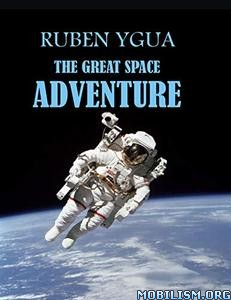The great space adventure by Ruben Ygua
Requirements: .ePUB reader, 5 MB
Overview:Galileo Galilei was an astronomer, mathematician, physicist, and philosopher who led the scientific revolution that took place during the Renaissance. His discoveries have made him the father of science, as well as the father of modern astronomy and physics.
In 1609 he received a letter from a former student informing him that in Holland they had made a telescope that allows him to see distant objects. With only this information, Galileo will build its own telescope far superior to the Dutch one: it does not deform objects, it has more magnification and thanks to a divergent lens it gives the image to the right.
That same year he presented the instrument to the Senate of Venice in San Marco Square, from where he managed to show the island of Murano located 2.5 km from the place. This means obtaining a lifetime post at the University of Padua and overcoming his financial difficulties. The following year he dedicated it to perfecting his instrument and observing the stars with it. With this he discovers that the Moon also has mountains, thus finally dismantling the Aristotelian theory that considered it to be a perfect sphere. In a short time you will also discover the nature of the Milky Way, the constellation of Orion, the star clusters, and study the rings of Saturn, the phases of Venus and sun spots.
In 1610 he made another important discovery: the four satellites of Jupiter that revolve around him. Today they are known as Galilean satellites in his honor. He thought of Jupiter and its satellites as a model of the solar system. By doing this he wanted to show that Aristotle was wrong again and that not all the stars revolved around the Earth. This was a severe blow to geo-centrism. Galileo will publish all his discoveries in this field in The Messenger of the Stars (Sidereus Nuncius). The publication of this book will cause Aristotle supporters to declare war on him since they do not want to see their science questioned. Furthermore, his method based on observation and experimentation was the opposite of theirs. Galileo will refuse even to be compared to them.
That was the beginning of modern astronomy.
Historically, space exploration began with the launch of the artificial satellite Sputnik by the USSR on October 4, 1957, at the Baikonur Cosmodrome (USSR rocket launch base), in Tyuratam, Kazakhstan. This event provoked a space race for the conquest of space between the USSR and the United States that culminated in the arrival of man on the Moon.
This is the story of that great adventure.
Genre: Non-Fiction > History
Download Instructions:
https://ouo.io/Jqq5eif
https://ouo.io/NRW5na
Trouble downloading? Read This.


